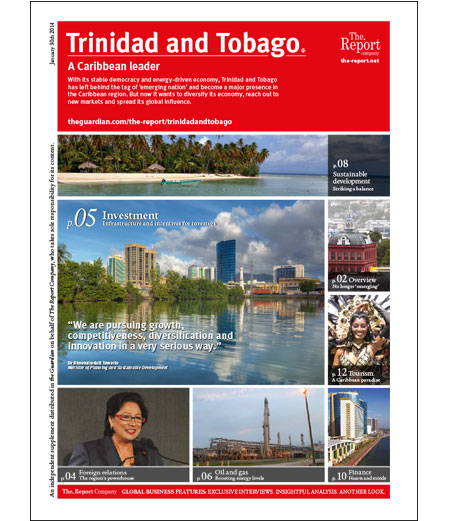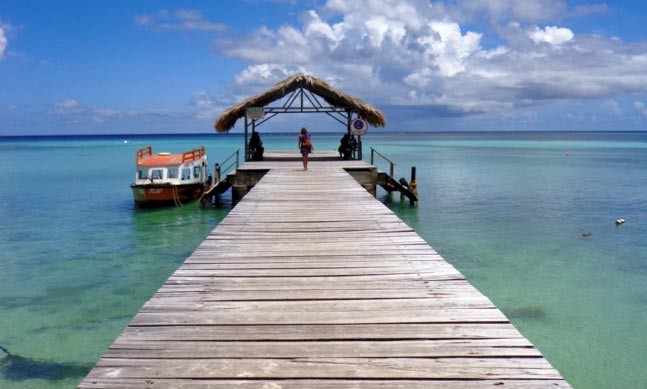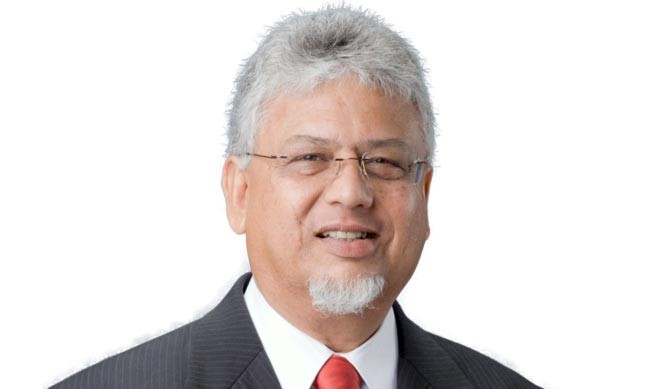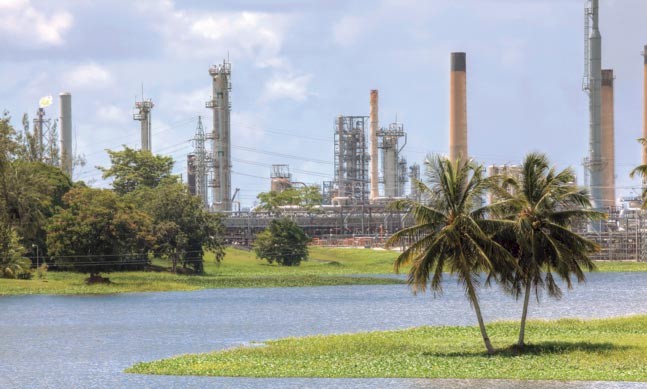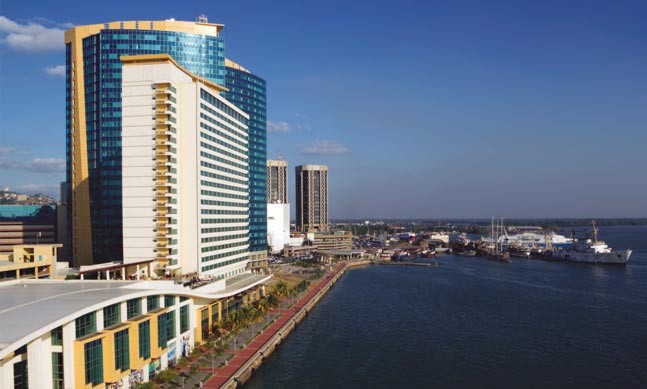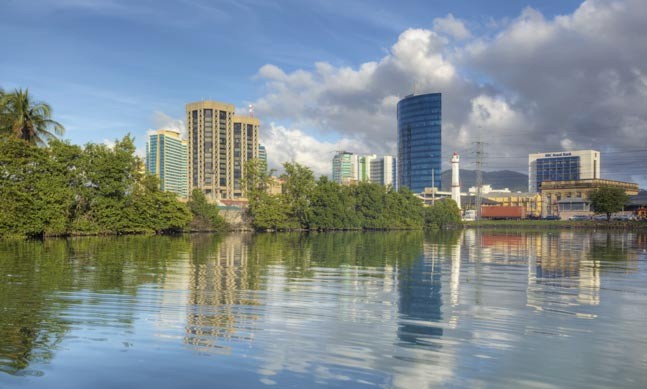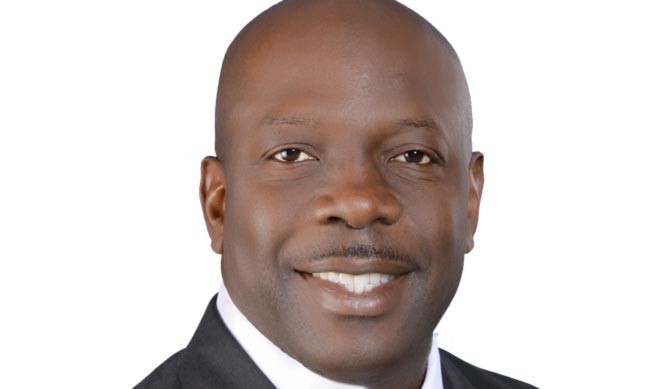The Eco-Industrial Development Company of Tobago (E-IDCOT) was established in 2009 as a wholly-owned, private limited liability company by the Tobago House of Assembly out of a need to diversify Tobago’s economy through the environmentally-sustainable production of goods and services on the island. The company is responsible for developing, promoting and managing a number of eco-industrial parks in Tobago and is completing the first of these, the Cove Eco-Industrial and Business Park located within the island’s south-western peninsular on the Cove Estate in Lowlands, Tobago.
The Report Company: How would you appraise the business environment in Tobago?
Earle Baccus: Tobago has always been regarded as clean, green, safe and serene. Tourism has been the mainstay of the economy since time immemorial. The island has won numerous international awards as an eco-tourism destination, but given the fact that we’re coming out of a global financial crisis, the Tobago House of Assembly took the initiative to look at the diversification of the economy while ensuring that whatever happens is in keeping with the eco-mantra of Tobago.
At the end of the day, whatever industrialisation is undertaken must not be deleterious to the environment, so we’re looking at a branding of the type of production that can take place here in Tobago. Given the fact that sustainable development with a low carbon footprint seems to be the way to go, this provides an opportunity for any industry located in Tobago to carry this powerful brand and therefore powerful marketing tool.
The operations that have been attracted to Tobago conform to environmental standards and they are anxious to locate within the park for a number of reasons, including the fact that we have clean energy.
TRC: What types of companies do you want to attract to the park?
EB: The first types of companies would be those that rely on clean energy and natural gas intensive operations, whether it be used for drying or processing or cooling or heating. Then you’re looking at food and food processing, light manufacturing, agro industries, ICT, professional services and environmental management. It’s a wide spectrum of operations which have to conform to our eco-friendly guidelines.
“The Tobago House of Assembly took the initiative to look at the diversification of the economy while ensuring that whatever happens is in keeping with the eco-mantra of Tobago.”Tweet This
TRC: What incentives do these types of companies get to set up their operations in the park?
EB: The Tobago House of Assembly cannot of themselves give any type of fiscal incentive; it has to come from the central government. We have made an application to the central government for special dispensation for operations located within the park. The government is still looking at it to ensure there’s no imbalance taking place as compared to other industrial parks located within Trinidad and Tobago. The incentives have to be balanced because there are other parts of the country where you want to encourage industry and development.
TRC: How would you appraise the ease of doing business in Tobago?
EB: It’s relatively simple. I think the issue in terms of doing business really relates to establishing a company and getting all the necessary approvals. Those statutory approvals still have to be handled to a large extent in Trinidad but the initial decision-making can be done in Tobago so you don’t have to go to Trinidad to file your application.
TRC: What is the status of Cove Eco-Industrial and Business Park? Is it completed?
EB: The park is completed. There were delays, which had to do with the preparation of the site and the civil and utilities infrastructure work. At one time the entire park was flooded because somebody blocked a natural water course, then there were some geological issues. There’s a high water table in the park so that necessitated certain drainage arrangements. Today it’s complete; all the infrastructure is in, from water and wastewater treatment to electricity, ICT and communications, so we are open for business.
TRC: What services can companies expect to receive from you?
EB: We have started providing project procurement and project management services and we provide this service to the various divisions within the House of Assembly. We will design projects, identify consultants and contractors and use our tendering procedures to bid.
“We’re looking at a branding of the type of production that can take place here in Tobago. Given the fact that sustainable development with a low carbon footprint seems to be the way to go.”Tweet This
TRC: Are there already companies coming to set up in the park?
EB: Yes, we have a metalworking company which has been there since April, while a number of other companies have expressed interest. One does door manufacturing, another one is into safety wear and another one is into food and beverage processing.
TRC: When will they be set up?
EB: For each one of the companies there’s a pre-requisite for them to locate in the park. One needs to complete its financing package, another one needs to upgrade its equipment to cater to the market and the third is looking at getting free zone status.
In fact, we have made application to deem Cove a special designated development area, so it will have free zone status.
TRC: What is your outlook for the future?
EB: I would want to see E-IDCOT evolve into the premier institution for eco-industrialisation in the Caribbean. We want to take the model that we have developed here of eco-friendly and sustainable production to the Caribbean at first then internationally.
TRC: What would be your message to prospective investors?
EB: It would be simply to welcome them to the park. We provide an enabling environment for doing business. Everything is located here; we have state-of-the-art infrastructure and relatively inexpensive utilities which provide a competitive environment for doing business in Tobago.


